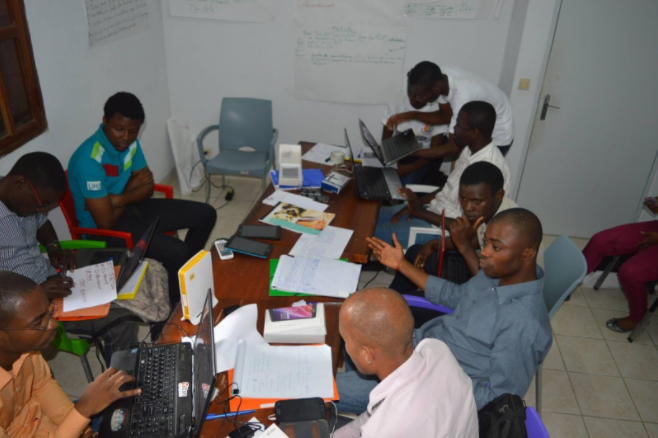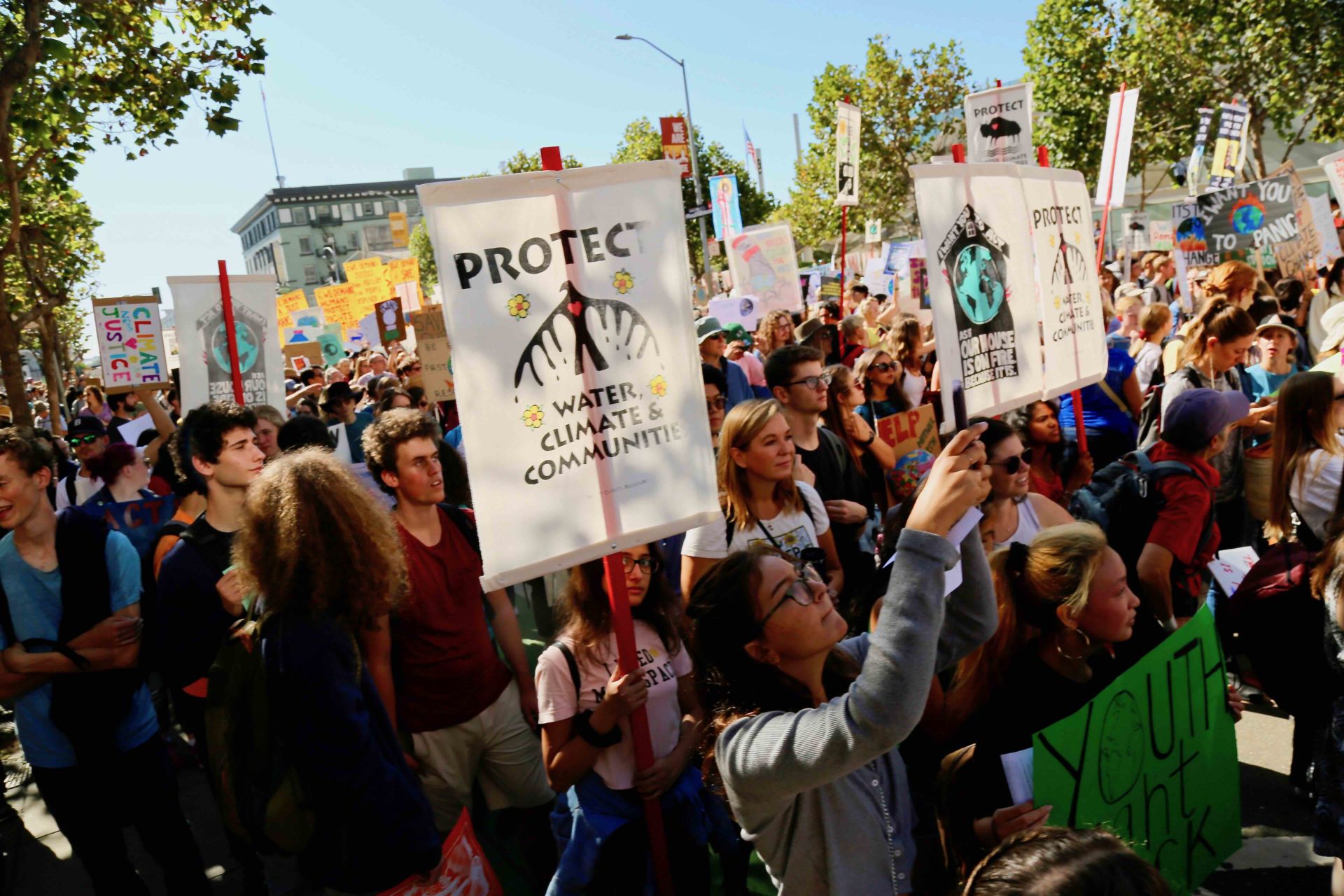Digital technology has the capacity to address violence and conflict in new and innovative ways.
When it comes to peace, technology is a powerful magnifier. Technology can enhance and accelerate peacebuilding efforts. This year’s Geneva Peace Week events were hosted entirely on Webex, allowing peacebuilders from around the world to convene and converse in real time. But in the wrong hands, technology can also be a catalyst for oppression and division.
Each year, Geneva Peace Week highlights and connects actors working to promote peace, rights, and wellbeing around the world. This year, the event featured several discussions covering the good and the bad in the world of peace tech, including issues such as rebuilding trust in fragile societies, building peace in a world of big data, how social media influences conflict dynamics, and how to improve governance for peace in the digital age.
Here are three ways technology can promote peace:
1. Big data for peace
Big data is a trendy topic in most fields today, but how can it aid peacebuilders? Here are three key big data innovations shared at Geneva Peace Week:
Sentiment analysis and public policy: Public sentiment analysis of big data can enable effective decision-making. Emmanuel Letouzé, Founder and Director of the Data-Pop Alliance, used machine learning algorithms to analyse Facebook data and determine how residents of Botswana feel about the police and corruption.
Network analysis and conflict resolution: When peace mediators understand the complex web of actors involved in a conflict they can determine whom they should reach out to; the more connected an armed group, the more likely peacebuilders can stop the fighting between a wide range of actors in the conflict with this knowledge. Kate Keator, Manager of the Syria Conflict Mapping Team at The Carter Center, ran big data through an open source social network analysis software Gephi to model the complex relationships of armed groups in Syria’s Aleppo Governorate.
Satellite imagery and human rights: Data from satellites can locate, measure, and draw attention to human rights violations. Branka Panic from the NYU Center on International Cooperation described a research study conducted by the Australian Strategic Policy Institute and ABC News that used satellite imagery to estimate the size and spread of Uyghur internment camps in western China.
https://www.youtube.com/watch?v=1RvxqwcFj88
2. Social media and frontlines media
Dr. Medinat Abdulazeez Malefakis, Research and Information Analyst for the Norwegian Refugee Council’s Assessment Capacities Project said Nigerian citizens are confronted by two social media puppeteers in the context of the Boko Haram conflict — Boko Haram and the Nigerian government. In response, the Nigerian citizenry use social media among themselves to quickly share their experiences of the conflict and dispel misinformation.
Obi Anyadike, Senior Editor for The New Humanitarian detailed his experiences covering community perceptions of the Boko Haram conflict. Per Anyadike’s reporting, Nigerian women have discovered a “newfound empowerment” and “emphatically renounced” the ideology of Boko Haram, offering a hopeful counterpoint to the usual coverage of the conflict. Combining frontline storytelling with peace data, The New Humanitarian launched a new campaign reporting on the fusion of peace work, development and humanitarianism.
Related Articles: Using Mobile Technology to Achieve the SDG | Technology Trends Transforming the World | How can companies contribute to peace?
3. Democratising data and datafying democracy
Peace data coordination: As data collection and the number of new actors in the peacebuilding ecosystem surge, there’s a growing need for coordination and communication to ensure peacebuilders around the world have open access to reliable data. To address this, NYU’s Branka Panic suggested the creation of a Peacebuilding and Conflict Prevention Data Hub, modelled after the Humanitarian Data Exchange.
Digital democracy: As of October 2020, the typical digital citizen spends 15 per cent of their time on digital social platforms, but social media is an inadequate forum for political discourse. In a digital world, how can citizens engage in productive democratic discussions? Emmanuel Letouzé suggested Digital Democracy Parks where government and society can interact and organise democratic discussion. Current models of Digital Democracy Parks include the vTaiwan crowdsourced consensus-building platform and the e-Democracia virtual communities established by the Brazilian Chamber of Deputies.

Cyberspace governance: Dr. Lucas Kello, Director of the Centre for Technology and Global Affairs at Oxford said cyber incidents can be just as harmful as conventional acts of war. Currently, we lack the international legal or institutional structures to mitigate them. How can we promote good governance in cyberspace? Launched in 2018, the Paris Call for Trust and Security in Cyberspace is a cross-sectoral effort by more than 1000 stakeholders to agree on nine common principles to secure cyberspace. By convening states, tech companies, researchers and civil society, the Paris Call has the potential to ensure peace and security in the digital world.
The views and opinions expressed in this article are those of the author and do not necessarily reflect the views of the publisher.
About the author: The article has been written by Ryan Maia, Writer, for the Vision of Humanity Editorial staff – brought to you by the Institute for Economics & Peace (IEP). The IEP investigates the impact of COVID-19 and future trends in economics, politics, social dynamics, conflict and development.
Editor’s Note: The opinions expressed here by Impakter.com columnists are their own, not those of Impakter.com. — In the Featured Photo: PeaceTech for Women. Featured Photo Credit: Clem Onojeghuo/Unsplash












